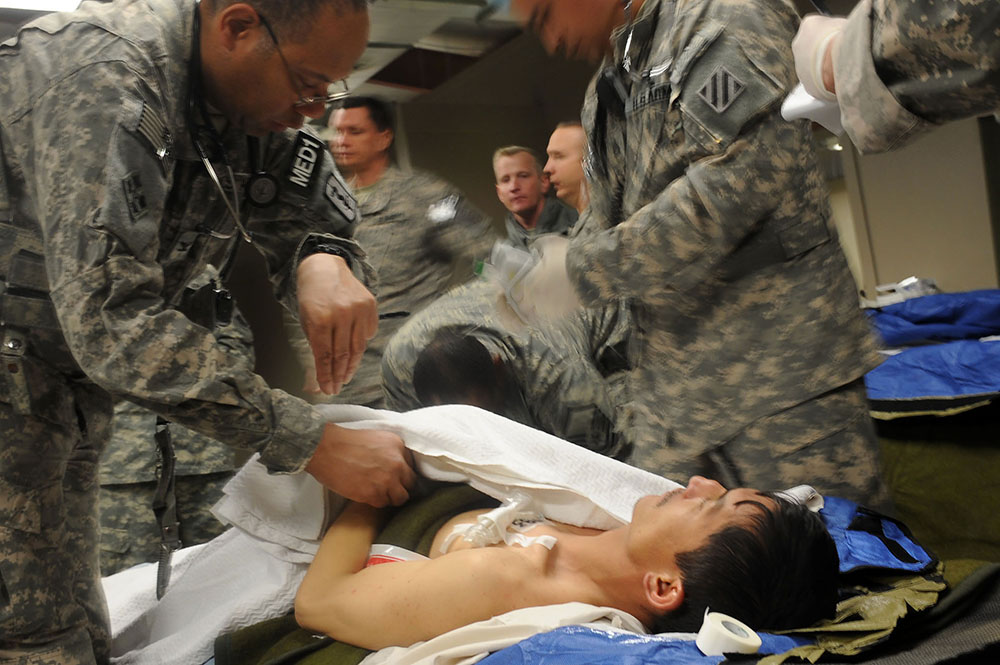
Mild traumatic brain injury (MTBI) is often described as a “signature injury” of Operation Enduring Freedom (OEF) in Afghanistan and Operation Iraqi Freedom (OIF), primarily due to the prevalence of improvised explosive devices. Combat experience with such explosions is linked to posttraumatic stress disorder (PTSD). Given that nearly 2 million Americans have served in these conflicts, the need to analyze these dynamics over the long term and refine scientific understanding will remain significant for years to come.
A 2011 study published in the Archives of General Psychology, “Longitudinal Effects of Mild Traumatic Brain Injury and Posttraumatic Stress Disorder Comorbidity on Postdeployment Outcomes in National Guard Soldiers Deployed to Iraq,” sought to analyze the relationship between these injuries and long-term psychological effects. One month before returning home from Iraq, 953 National Guard soldiers were surveyed; the surveys were then repeated one year later. Participants self-reported MBTI and PTSD. Soldiers were compared on a range of psychosocial outcomes including: depression, and physical symptoms; alcohol use; social functioning; and quality of life.
The study’s findings include:
- Combat-related PTSD was strongly associated with psychosocial outcomes and postconcussive symptoms (PCSs), such as headache, irritability, and diminished concentration. However, one year after soldiers returned from Iraq, there was little evidence of a long-term negative impact of MTBI history on outcome measures after accounting for PTSD.
- “There were no differences between the comorbid MTBI-PTSD and PTSD-only groups on any of the post-deployment psychosocial outcomes.”
- “Compared with the MTBI-only group, the PTSD-only group reported higher levels of depression and nonspecific somatic complaints (except back pain; pain in arms, legs or joints; and pain or problems during sex) and lower social functioning and quality of life.”
- “One important finding was the lack of evidence of an independent impact of concussion/MTBI on soldiers’ postdeployment psychosocial outcomes. After accounting for PTSD, we found that a history of concussion/MTBI alone was not associated with postdeployment PCSs, depression, problematic drinking, nonspecific somatic complaints, social adjustment, or quality of life.”
- “Finally, this study clearly shows that PTSD is a serious postdeployment mental health problem for a subset of returning OIF veterans.”
The study notes that “prevalence of concussion/MTBI in theater was 9.2%, a rate lower than previously documented among military personnel returning from OEF/OIF. It is possible this Brigade Combat Team may have been exposed to less combat than regular Army or Marines and may not be representative of all deployed military personnel.” But this rate increased to 22% one year later. The researchers consider a variety of hypotheses to account for this increase, including: “[S]oldiers may minimize reports of concussion/MTBI history to remain with their units, live up to perceived expectations of superiors and peers, and ensure health concerns do not delay return home during demobilization. On return from deployment, soldiers may feel at liberty to express health concerns and disclose events that may have contributed to concussion/MTBI.”
The study concludes that “these data showing that PTSD often underlies persisting PCSs suggest that early identification and evidence-based treatment of PTSD may be critical to management of postdeployment PCSs. The VA’s collaborative care model integrating mental health and primary care services may be a promising approach to reach veterans with PTSD.”
Tags: veterans, mental health, PTSD, war
